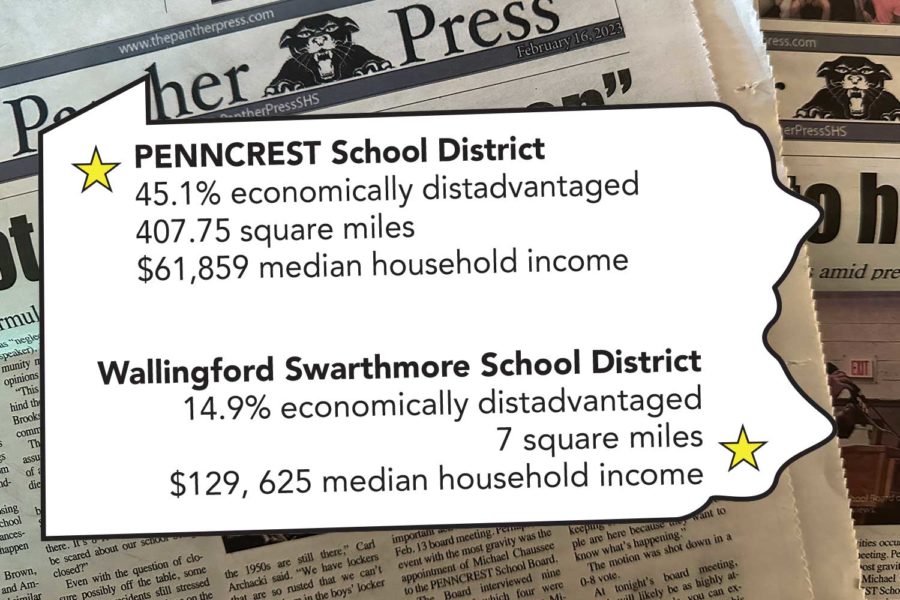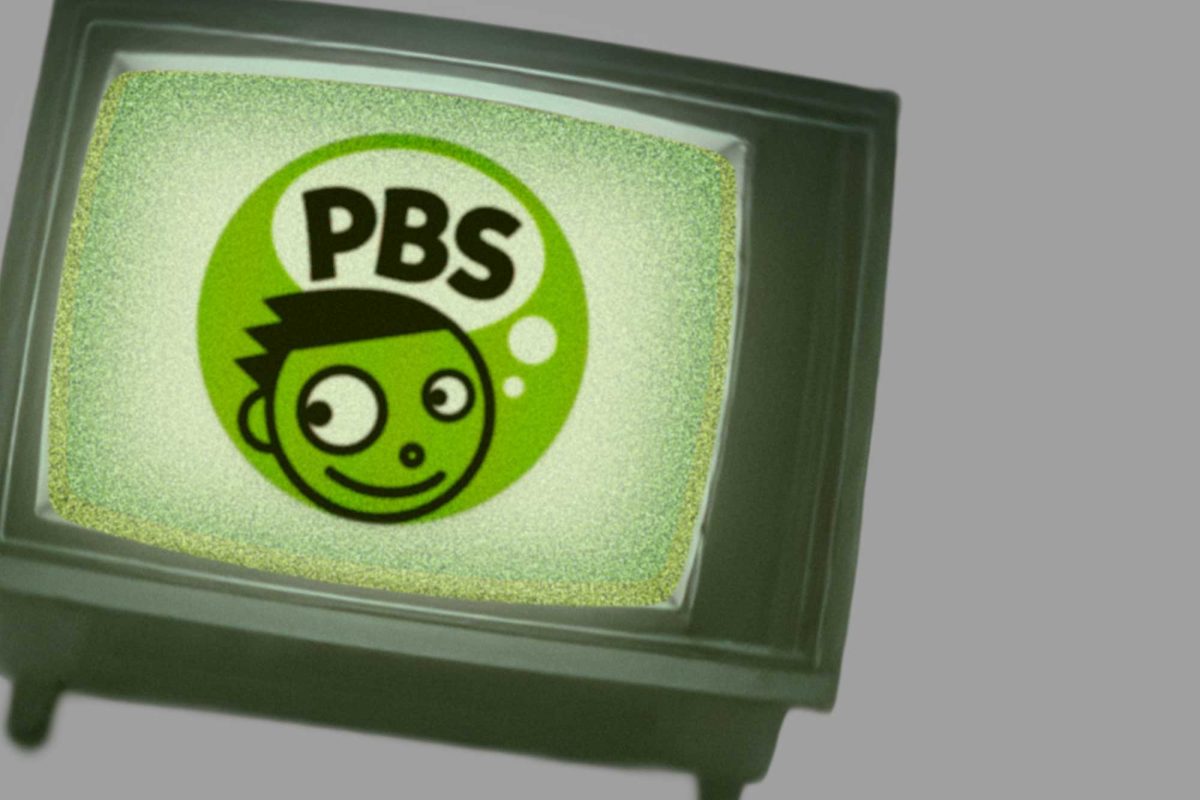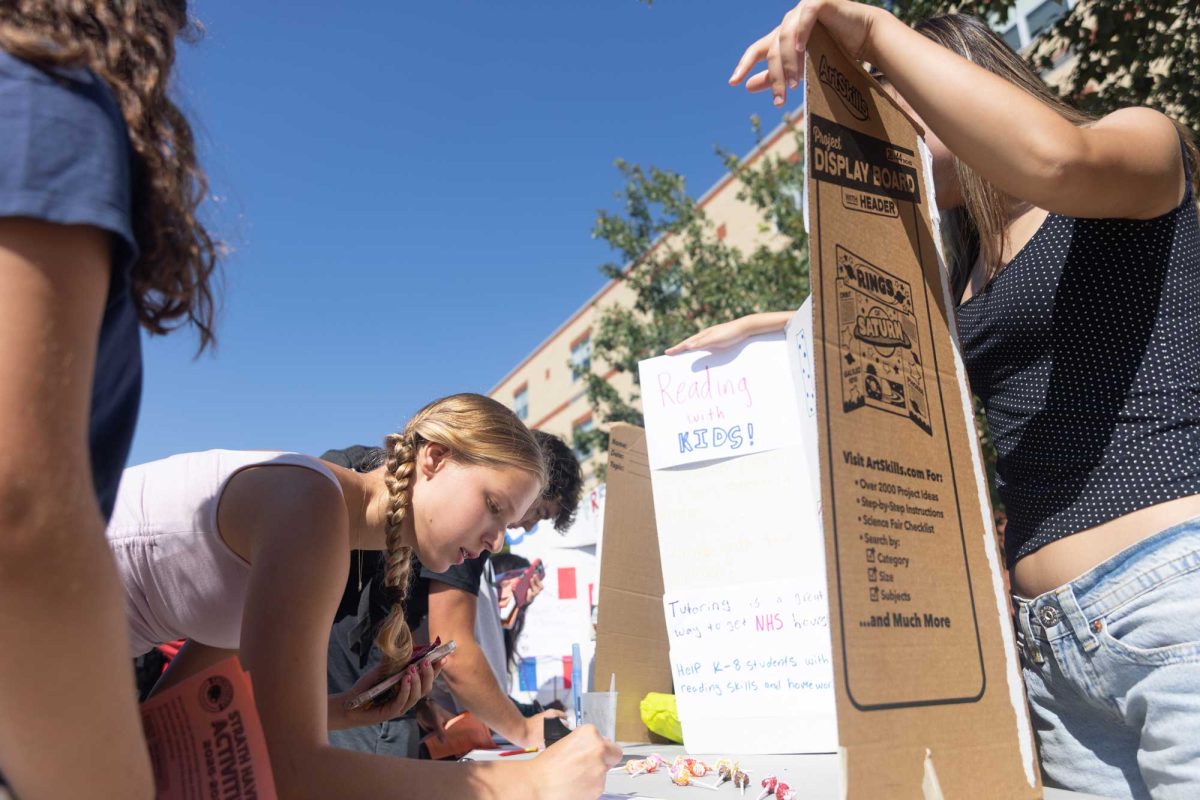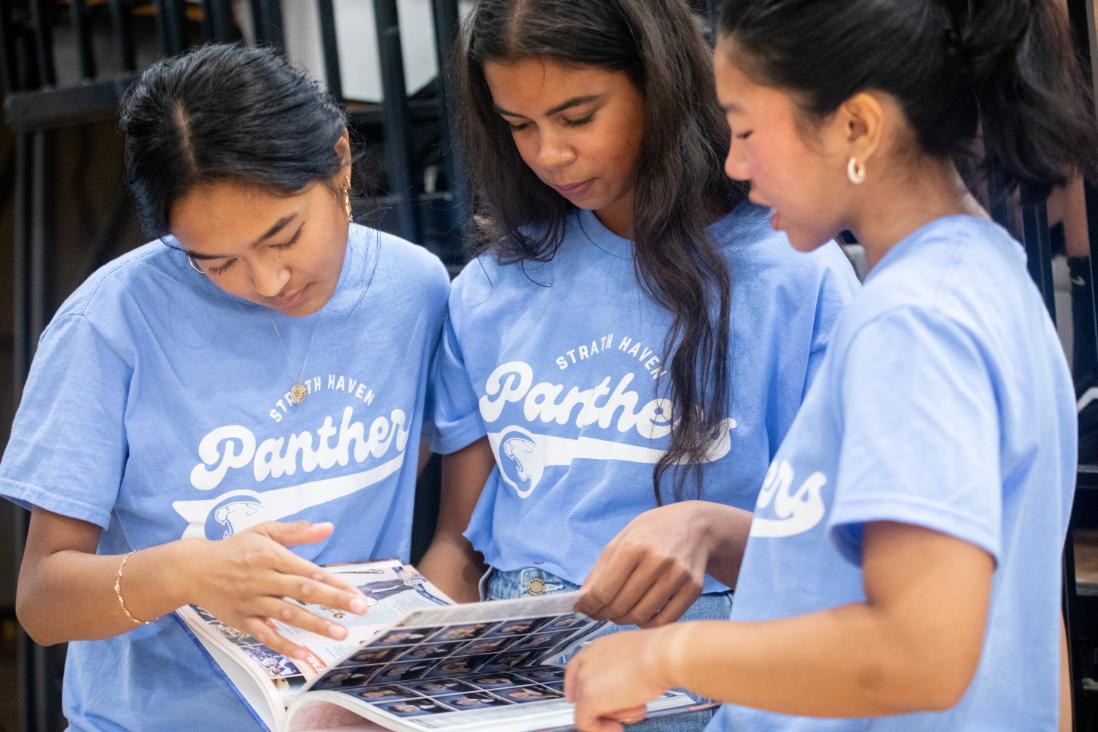Students in the PENNCREST school district in northwestern Pennsylvania are facing a book ban implemented by policy 109.2 during this school year, one of many controversial changes to their school district policies.
Editor-in-chief of the Saegertown High School Panther Press Brennen McWright must walk a tightrope between fact and opinion when it comes to reporting, because the wrong word could be fatal for the future of his newspaper.
In a school district where it’s more important than ever to speak about injustices, it’s even more dangerous to do so.
“If I failed to maintain a neutral term while talking about this stuff, then it kind of goes against my own points and will end up hurting me in the long run and press freedom in general,” McWright said.
The revision to policy 109.2 for library materials in the PENNCREST school district includes a section on “Avoiding Inappropriate Content.” The policy reads, “Sexualized content that falls short of material prohibited by criminal laws is nonetheless generally inappropriate and/or unnecessary for minors in school,” and prohibits materials that contain “visual or visually implied depictions of sexual acts or simulations of such acts; Explicit written depictions of sexual acts, or Visual depictions of nudity—not including materials with diagrams about anatomy for science or content relating to classical works of art.”
Another policy revision to policy 123 on Interscholastic Athletics restricts transgender students from playing on the same team as their identified gender.
The school district’s legal counsel, Mr. George Joseph of Quinn Law Firm, resigned following the school board’s votes on these controversial policies.
The Saegertown Panther Press has prided itself on being the leading newspaper when it comes to the school board policies. However, this means that they have to be extremely careful in what they say, because they could be next.
“I’m worried that people are going to forget that we’re still students in the district,” McWright said. “We try our best to function as an official newspaper. But we are not entirely that.”
According to McWright, The Panther Press adviser is left-leaning. Community members claimed that a petition against policy 109.2 that circulated at several schools in the district was circulated by Panther Press staff members under “heavy pressure” from their adviser, according to a column by the student journalists published in the Erie Times-News.
McWright stands firm on the Panther Press’s independence.
“[Students] run the newspaper, we decide what to make, what to publish, and, overall, just what actions to take in general,” he said.
Yet McWright also worries that politics may get in the way of student journalism.
“I think if there’s enough pressure, we do have a conservative majority against a more left-leaning advisor, I think they’re going to mistake it for a political war,” he said. “I think that we could be caught in the crossfire, and the student body as a whole will be made to pay for political grudges.”
McWright hopes for more open-minded ideas on every side—from students, adults, and the school board.
“I think the school board is struggling to listen to the opposite viewpoint at times. But that’s not to say, the entirety of the school board. I think everybody—not just the school board—everybody could be a bit more receptive to the opposing opinion at this time,” he said.
Regarding the policy, McWright feels that book bans are too general and don’t respect every family’s specific wishes.
“I’ve done a lot of research on [policy 109.2], but it seems like we should be working to help our kids and ourselves to be more responsible than forcing other people and other people’s kids to be more responsible, because everybody’s idea of responsibility is a little bit different,” he said.
“If you don’t want your child to read something, then… phone the library and be like, ‘Hey, Little Billy Bobby doesn’t, I don’t want him to read that. That’s, that’s not good for my child.’ I think that’s a more effective approach,” McWright said. “Because in that case… the parent gets what they want, in that their child doesn’t read that. The people who do want their kids to read that get what they want, because they’re still allowed to read that. And the school board gets what they want, because they won’t be sued. So I think that’s a win-win-win, in my opinion.”
Amidst the fluctuating tensions, McWright believes the newspaper has written well on the topic.
“I’m really proud of how the staff is handling this. I think we’ve done a pretty good job of staying neutral,” McWright said. “I think it’s just a matter of looking towards the long run and realizing that the community deserves a fair, accurate, centrally based, non-biased retelling of what actually happened instead of a left wing or right wing.”
















